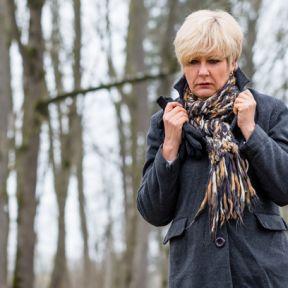How the Seasons Affect Our Psychology. Seasons cause changes in more than just our mood. Reviewed by Michelle Quirk

KEY POINTS-
- Seasonal changes in mood are well-known.
- Seasons also affect sex, aggression, and generosity.
- Our aesthetic preferences and cognitive abilities also vary throughout the year.
Do you find yourself getting the blues in the winter? If you do, you aren’t alone. According to the American Psychiatric Association, about 5 percent of Americans experience seasonal affective disorder (SAD), a form of depression that comes on in the winter and is thought to be related to decreased exposure to sunlight. Symptoms of SAD include negative mood, changes in appetite and sleep patterns, and decreased energy. Many more people experience less extreme versions of these symptoms during the winter months (Wehr & Rosenthal, 1989).
But it’s not just our moods that shift with the changing of the seasons. In a new review (Hohm, Wormley, Schaller, & Varnum), my colleagues and I found that seasons affect a wide range of mental and behavioral phenomena. Here I highlight some of these findings and discuss some potential reasons we identified for why seasons may affect us in the ways that they do.
Aggression, Sex, and Helping Others
It’s a widely held folk belief that people become more irritable and more aggressive when it’s hot outside. It turns out there’s more than a grain of truth to this idea. Aggressive behavior, from horn honking (Kenrick & MacFarlane, 1996) to violent crime (Lauritsen & White, 2014) tends to peak in the summer months in the Northern Hemisphere.
Our sexual behavior also appears to vary with seasons, with data from a variety of sources suggesting a bi-annual cycle. Data on internet searches for prostitution, condom sales, and abortions all point to sexual activity peaking in the summer and around Christmas (see Hohm et al.). Interestingly, a new study involving nearly a half-million American and Swedish users of the Natural Cycles birth control app found that women were more likely to ovulate and engage in sexual behavior as the length of the day increased, which may help explain the summer peak in sex suggested by prior findings (Shanmugam et al., 2023). As the authors of that study note, many other species, like goats and horses, follow a similar pattern as well.
The seasons also appear to influence how kind we are to others. For example, charitable contributions in countries with Christian traditions increase dramatically around Christmas (Ekström, 2018). People in these societies are also more likely to tip their waiters generously during the holiday season (Greenberg, 2014).
Combing through the literature, we found a range of other ways that seasons shape our psychology. Our cognitive performance, our preference for different colors and different types of music, and the kind of foods we tend to eat all vary over the course of the year (Hohm et al.). For example, one study conducted in Belgium found that people had the hardest time keeping their focus in the summer and the easiest time doing so in the winter (Meyer et al., 2016).
Why Seasons Affect Us
There are a number of reasons why seasons may affect us the way that they do (Hohm et al.). Some of these reasons have to do with changes in exposure to sunlight as is likely the case with SAD or seasonal variation in sexual activity. In other cases, such as seasonal variation in generosity, the cultural associations we hold with different times of year, such as the traditions and norms surrounding Christmas, may be driving the effect.
Seasons may also cause shifts in other key aspects of our environments in ways that in turn could lead to psychological and behavioral changes. For example, our odds of getting sick tend to fluctuate throughout the year. Previous work suggests that when the threat of infectious disease is greater, people may be more likely to conform (Murray, Trudeau, & Schaller, 2011) or endorse more traditional social views (Tybur et al., 2016). We might then expect that these tendencies, too, would change over the course of the year.
In a similar vein, in places that experience large seasonal influxes of tourists, such as the Bahamas or Phoenix in the wintertime, the effective population density changes over the course of the year. Here again, previous work suggests that this kind of environmental change might have important consequences. Higher population density tends to lead to more long-term planning and to people having fewer children but investing more in their upbringing (Sng et al., 2017). So, in these types of places, we might expect these tendencies to shift over the course of the year as well.
Taking Seasons Seriously
If we realize that seasons may affect everything from our moods to our mating behavior, this can help us better understand how we and those around us are likely to feel and act at different times of the year. This realization also highlights a potential problem in how most psychological research is conducted: Typically, unless a psychologist sets out to test a hypothesis about seasonal effects, they don’t tend to report the time of year when they collect their data. Nor when they collect data over many months do they tend to test for the presence of seasonal influences. As we suggest in our new paper, the season may be right to change that.
- Questions and Answers
- Opinion
- Story/Motivational/Inspiring
- Technology
- Art
- Causes
- Crafts
- Dance
- Drinks
- Film/Movie
- Fitness
- Food
- Jogos
- Gardening
- Health
- Início
- Literature
- Music
- Networking
- Outro
- Party
- Religion
- Shopping
- Sports
- Theater
- Wellness
- News
- Culture
- War machines and policy

